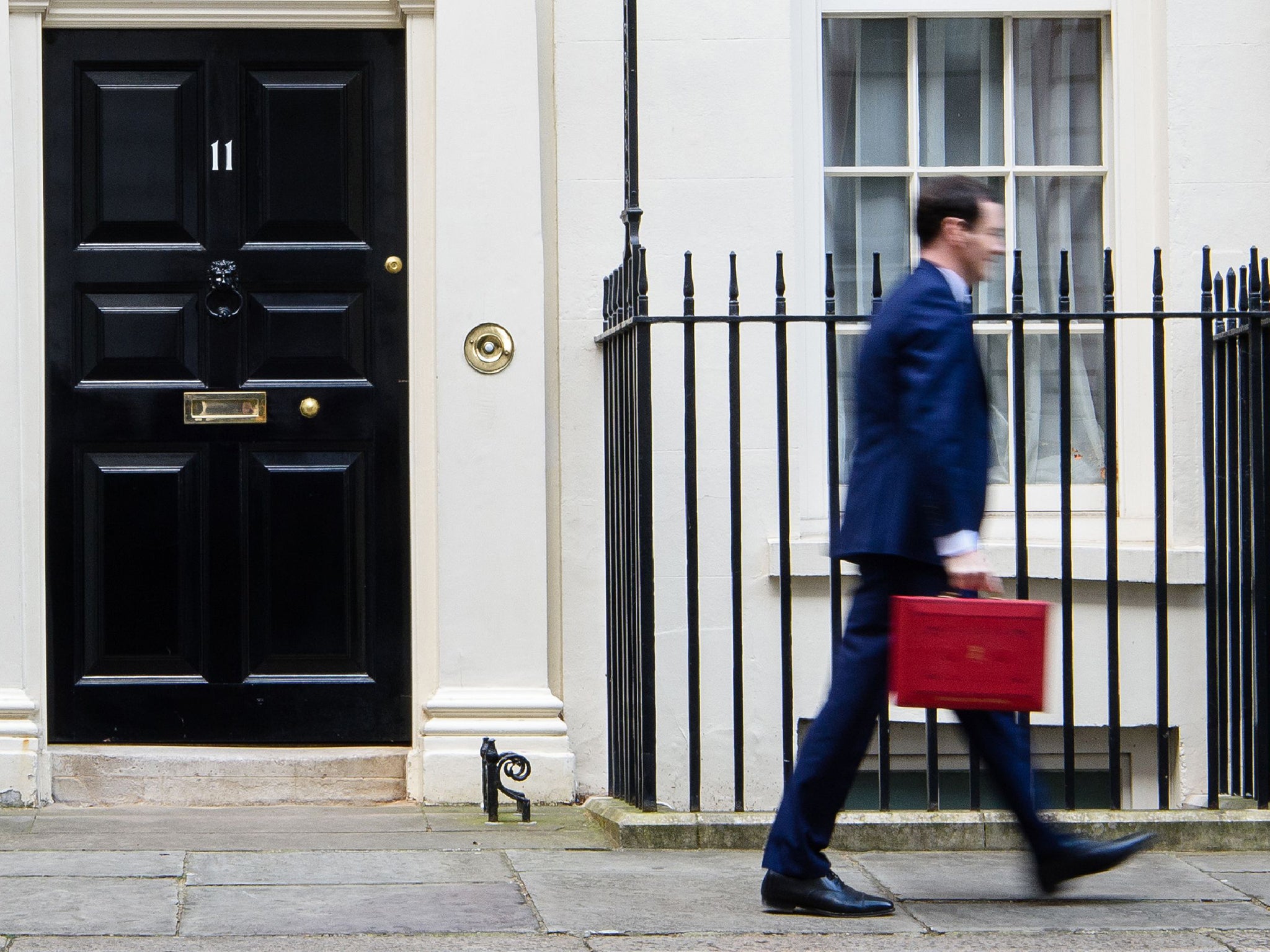Budget 2016: This was a Chancellor keeping his fingers crossed, hoping something will turn up
Mr Osborne is keeping his fingers crossed that by 2020 he will be in a different job


As if by magic George Osborne predicts a surplus by 2020 even though the year before he expects, still, a big deficit. More imprecise spending cuts are planned for 2019 and 2020 as the Conservatives approach a general election. Will they be implemented when the time comes – pre-election spending cuts as the Tories bid for a third term in office following a decade of cuts?
Osborne is an accomplished performer as he delivers his budgets. But the performance obscures the fuzziness of his vision. Even his new passion for localism, what he calls his “devolution revolution”, becomes confused and contradictory once the performance is over. Those who meet Osborne privately come away convinced that he is sincere about his “northern powerhouse” and other plans to devolve power. I have spoken to national Labour figures as well as some of those in local government who believe Osborne to be genuinely committed to this project.
Yet consider the incoherence of his devolution revolution as outlined in a single budget.
With a flourish the Chancellor announced that all schools would become academies, removed from local authority control, an act of sweeping centralisation. The centre will determine budgets and might be even more prescriptive about what is taught. Osborne mentioned the possibility of maths being taught up until the age of 18 as if he were the headmaster of all the academies in the country. The proposal is the biggest onslaught on the role of local government since the abolition of the GLC and metropolitan authorities in the 1980s.
Next, he appears to be proposing that poorer authorities will be even more starved of funding than other councils. It appears that councils will raise all their budgets from residents and businesses regardless of need or capacity to pay. In effect, under the guise of localism local authorities in many areas will have less power or resources to deliver local services. This is at a time when councils across the country are suffering unprecedented cuts.
The consequences in many policy areas also undermine Osborne’s apparent objectives. He proclaims his commitment to the arts, and again specialists in the arts testify to the sincerity of his ambition. But the cuts in council funding are leading to the closure of theatres, theatre companies and other cultural projects.
Meanwhile, as he seizes back some power for the centre he creates more mayors, a genuinely radical innovation. High profile mayors are a proven way of achieving more robust local accountability. Osborne gives away some power and acquires a lot more – a haphazard third way, the centralist localist.
His contradictory third way extends further. As part of his big tent Osborne also praised the Labour peer, Andrew Adonis, for his work on the recently created Infrastructure Commission. Yet his reluctance to borrow for capital spending would delight the most miserly of Thatcherites. Osborne proclaimed several times during the Budget that he and the Government were the builders, the theme from his party conference speech last autumn. Even so there is nowhere near enough building happening fast enough to meet the demands of overcrowded London and other parts of the country suffering from creaking railways and poor roads. Osborne the builder also shows limited appetite for the building of affordable houses. He has ambitious targets for housing. He shows less ambition in meeting them.
In his first budget after the 2010 election Osborne observed insightfully that previous Tory Chancellors had made a mistake when they cut capital spending in difficult economic circumstances. He followed up this important observation by cutting capital spending. The same contradictory approach has continued. Osborne the builder could borrow at bargain low interest rates in order to invest in infrastructure. He chooses not to do so, although he genuinely has a commitment to building projects. One of the most effective Labour cabinet ministers in bringing about practical change, Adonis would not have agreed to become chair of the Infrastructure Commission if he did not believe there was a decent chance of some infrastructure being built.
As I wrote in The Independent earlier this week, Osborne was unusually trapped for a Chancellor delivering a spring budget after an election victory. This is normally the phase in the electoral cycle for some big risk-taking moves with the next general election miles away. But Osborne faces a poll in the form of the EU referendum in June, making this closer to a pre-election budget. He was also constrained by the fragility of the global economy and his self-imposed theoretical surplus target.
So how did he seem so hyper active when he had so little room to move?
The answer is that he waved that wand and moved some awkward decisions and targets towards 2019 and 2020. Also, he worked on the assumption that additional revenue will be raised by curbing tax avoidance. This is the favourite revenue-raising measure of chancellors, alienating few voters even if it does not raise very much revenue.
For Osborne, the Budget could not have come at a more demanding junction. He managed to appear as vibrantly in command as usual but this was a Chancellor keeping his fingers crossed, hoping something turns up between now and 2020 to help him meet his various targets and policy goals. He also keeps his fingers crossed that by then he will be in a different job.
Join our commenting forum
Join thought-provoking conversations, follow other Independent readers and see their replies
Comments